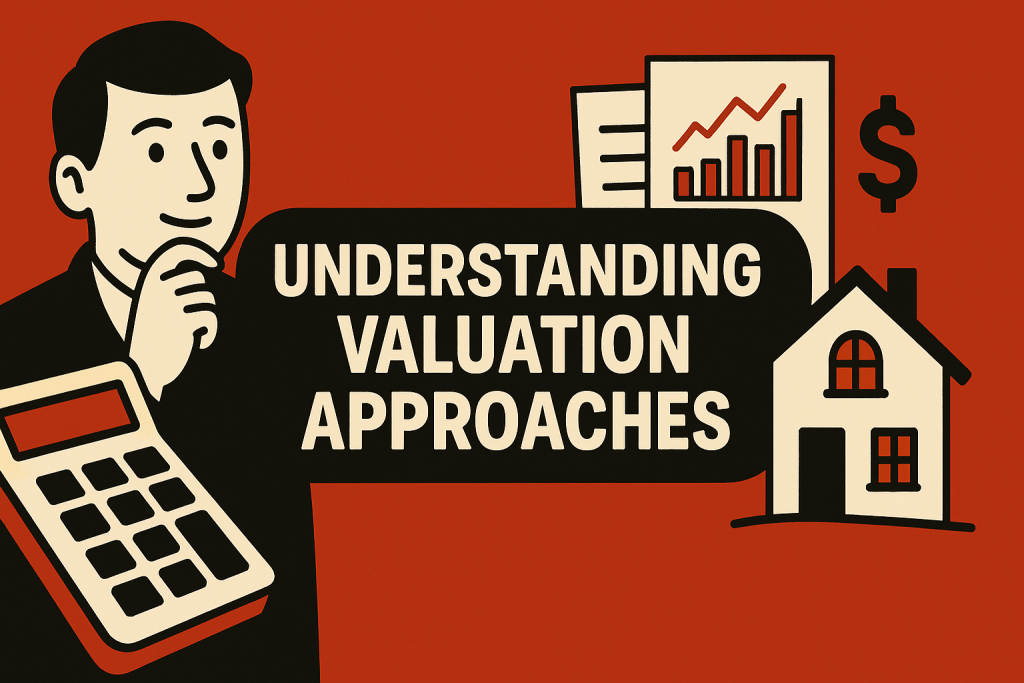Accurate property valuation is crucial in almost every important decision in real estate. Whether you’re involved in buying or selling residential property or managing assets strategically within commercial real estate, precise valuations really matter. For chartered surveyors accredited by the RICS (Royal Institution of Chartered Surveyors) as well as homeowners, understanding exactly how valuations are made, and the methodologies involved, is essential.
Understanding Valuation Approaches
In the UK, valuation methods generally fit into these main categories:
Comparative Method
This method is mainly applied to residential or straightforward commercial properties, comparing similar properties that have recently been sold or leased. It relies heavily on accurate market data and expert knowledge provided by real estate consultancy professionals, making localized insight particularly important.
Investment Method
Used primarily for commercial real estate valuations, this method evaluates properties based on their potential to generate income. It takes into account important factors such as rental yields, occupancy rates, and prevailing market trends, making it particularly effective for strategic investment appraisal and confident decision making.
Residual Valuation
Typically used in property development scenarios, the residual valuation approach calculates the value of land or property by forecasting future income and then subtracting expected development expenses, including construction costs and risk management elements.
Cost Approach
This method is usually employed when other valuation techniques aren’t appropriate, particularly for unique or specialised structures. It assesses the property’s value based on how much it would cost to reconstruct, taking into consideration depreciation, detailed site inspections, current building costs, and comprehensive building surveys.
Dealing with Valuation Challenges
Valuing property accurately in a fluctuating UK market can be complicated. Chartered surveyors must continually adapt their methodologies to reflect market volatility. This involves performing detailed risk assessments and regularly updating comparative data. When comparable property examples aren’t readily available, advanced tools like geospatial analysis and geomatics become crucial. Additionally, conducting thorough due diligence is particularly important when dealing with properties linked to heritage conservation or having complicated legal backgrounds, ensuring full legal compliance.
Leveraging Technology in Valuations
Advancements in technology have dramatically improved the accuracy and efficiency of property valuations. Chartered surveyors today regularly incorporate technology such as Automated Valuation Models (AVM), which quickly evaluate property values using extensive data sets. In addition, they rely on precise topographical surveys and advanced mapping tools to achieve accuracy in boundary determination and property sizing. Geographic Information Systems (GIS) are also increasingly important, enabling surveyors to identify spatial factors impacting property values, and proving especially useful in land surveying and infrastructure assessments.
Practical Implications for Homeowners and Surveyors
For homeowners, understanding the basics of valuation methodologies helps simplify property-related decisions, particularly when considering land acquisition, renovation projects, or resale opportunities. Chartered surveyors also significantly benefit professionally from clearly defined, transparent, and robust valuation approaches. These provide a firm foundation for enhanced client trust and significantly reduce the potential for disputes.
Clearly, navigating property valuation methodologies in the UK successfully means fully understanding when and why to apply each specific method, adapting quickly to changing market conditions, and confidently embracing the advantages offered by modern technologies. Whether it’s straightforward residential valuations or intricate infrastructure projects, clarity and professional expertise in valuation methods ensure precise, reliable, and confident property decisions.
